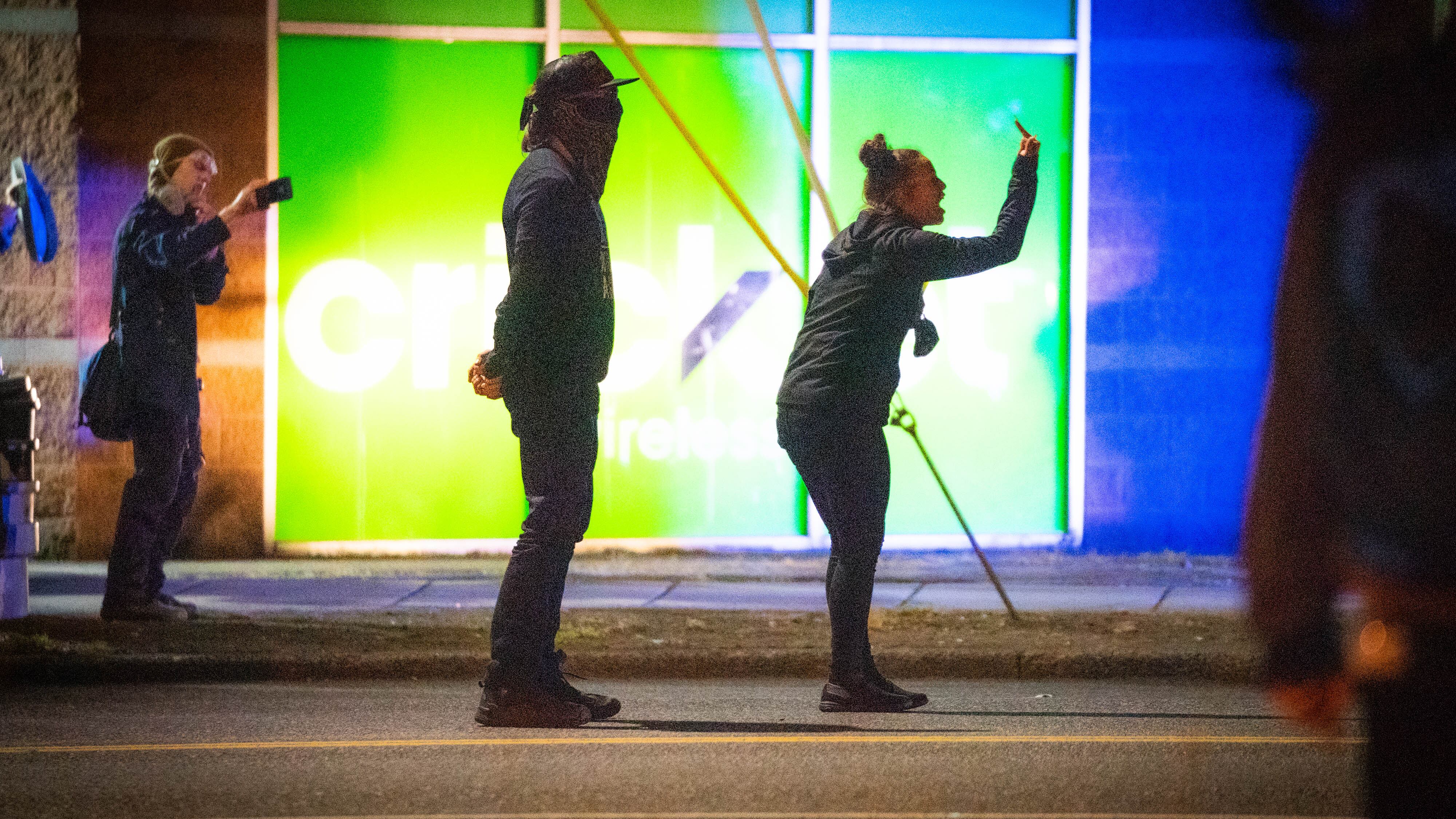Oregon's celebration of the nation's founding was repeatedly marked by racist animus and civil unrest.
As the state remained gripped in a pandemic and the governor urged people to stay home, citizens clashed with police and each other in disputes that were often documented in real time on social media. The cumulative effect was a portrait of a state in turmoil.
In downtown Portland, protests against police brutality continued for the 38th consecutive night July 4. Police declared riots on both Friday and Saturday nights, as protesters launched fireworks into the federal courthouse.
On Saturday night, federal officers surrounded the Mark O. Hatfield United States Courthouse, and police deployed tear gas and flash-bangs at protesters, according to reporter Sergio Olmos.
Some protesters used a blowtorch to set fire to a statue depicting a pioneer family, which demonstrators have criticized as a symbol of white people seizing Oregon from people of color.
Police arrested nearly two dozen protesters over the weekend.
A summary of tonight pic.twitter.com/9GB5VnESKT
— Sergio Olmos (@MrOlmos) July 5, 2020
Hours earlier, on the Oregon Coast, Lincoln City police arrested seven white men who yelled racial slurs at a Black family along the beach.
The police were initially called to the beach around 9:30 pm because the group of men were shooting off illegal fireworks, according to a news release from the Lincoln City Police Department. But once officers arrived, they learned that the group had also been taunting and challenging the nearby family, including "yelling racial slurs at them, insulting them and using Nazi salutes towards them."
For the racist incident, police cited and released seven men from Clark County, Wash.: Gennadiy Kachankov, Antoliy Kachankov, Andrey Zaytsev, Oleg Saranchuk, Ruslan Tkachenko and Yuriy Kachankov. The seventh man refused to identify himself, and he did not carry a photo ID, according to police.
That same day, video surfaced of an Oregon State Police trooper using the "OK" symbol, often associated with the white power movement, while working at a Black Lives Matter protest in Salem.
OSP sent out a press release Sunday denying the allegation that the trooper made the symbol to signify affiliation with white supremacy. Instead, the agency said he was trying to ask if a protester was OK.
"Best available evidence indicates the trooper was simply checking on the man's status and used the universal signal to signify this inquiry, which the man gestured he was—then patted this trooper and a second trooper on their shoulders in an apparent signal of appreciation," OSP said in a news release Sunday.
The Oregonian reported that audio from police body cameras supported the contention that the trooper was asking about the man's condition. But on social media, that explanation was met with scorn.
While each of these incidents was unsettling, none of them matched the violence in Seattle, where one protester was killed and another was critically injured after a driver struck them on a closed portion of Interstate 5 early Saturday morning.
Police said the driver is 27-year-old Dawit Kelete, according to The Seattle Times. He struck 24-year-old Summer Taylor, who died later at the hospital, as well as 32-year-old Diaz Love, who is currently in serious condition.
Love is a resident of Portland.

